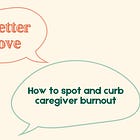How to know when it’s time to go back to therapy
Here’s what 30 years in on-again, off-again therapy has taught me.
TW: Brief mention of sexual assaults, passive suicidal ideation, and trauma
Open secret: I’m a big fan of therapy. I’m one of those people who thinks most folks could benefit from at least a few sessions, and I really despise when people weaponize therapy to indicate some kind of… moral failing or irreparable problem within a person. And, I recognize that therapy can be a huge privilege in our current hellscape, and finding a solid therapist you can trust and click with can be a monumental undertaking. Finding one who checks all the boxes and takes your insurance if you have it (and who you can afford either way), and/or is taking on new patients, and one who won’t call the cops if you mention passive suicidal ideation — there’s layers, right? And the more marginalized identities you hold, the more layers that can pile on to the decision. So while I’m very pro-therapy, I’m also realistic that it’s not always accessible for everyone. Both/and.
I saw my first therapist before kindergarten. Back then, it was mostly play therapy. The place I went had a really cool playroom with a sandbox and lots of toys. As I got older, play therapy became talk therapy (which is the most "mainstream" type), which then became tools and parts and different modalities. I was in therapy regularly until I went to college at 17, just months after being raped and subsequently losing my entire friend group and church community after disclosing. Shortly after disclosing, I ended up losing the person I’d been dating through high school, too. But I didn’t go back to therapy then. I figured: I had coping skills, I could handle it. After all, sexual assault, and the aftermath, was the original reason I went to therapy as a kid. I kept myself busy with school and work and extracurriculars — and a lot of really terrible decisions. In hindsight, I was functioning, but I wasn’t coping. Y’know? Then some family stuff happened, and suddenly I was barely functioning. That’s when I started seeing the on-campus therapist for about a year.
After college, in my early 20s, I saw a few therapists for very specific reasons — a cancer diagnosis, a work situation I needed help navigating, things like that. In my later 20s, my now-husband, our son, and I did alllll the therapy: We went to weekly family therapy, weekly couple’s sessions, and weekly individual sessions. Yes, that means one or several of us were up there pretty much every weekday. We could only afford that because it was a training program, and they had a phenomenal sliding pay scale. In the two years we went there, we “graduated” multiple therapists. Which also maybe means we could’ve “finished” in less time if we hadn’t been getting new therapists up to speed so frequently, but it supported us through some really difficult seasons (the death of my grandpa, losing our house in a storm, new and worsening health conditions, job loss, family problems…) and ultimately, I think the length of time was helpful.
After that, I took a break from therapy for five or six years. I was steady, I had coping skills out the wazoo, and I had gotten pretty good at therapizing (totally a word) myself.
When I think back to that time of our lives, that’s what I remember… dimness. You know how the sky gets dark and it suddenly looks like the light has been vacuumed right out of the world just before a storm opens up over you?
Then the bottom fell out.
Our son was sick. Really sick. (And I want to be clear here that he has given me consent to write about this.)
I was over-functioning until he got into inpatient treatment — and then I collapsed. I couldn’t get out of bed, I couldn’t get dressed, I couldn’t do anything except lay in bed and cry. The light in my world had dimmed. When I think back to that time of our lives, that’s what I remember… dimness. You know how the sky gets dark and it suddenly looks like the light has been vacuumed right out of the world just before a storm opens up over you? Yeah. That.
While it felt like forever, it was probably only a week before I got the text from my husband while he was at work. “[Boss] says we have telehealth for therapy. Go to this link.”
Through tears, I clicked the link. They could see me in 10 minutes. Fuck, fuck, fuck. I needed a shower and fresh clothes and I couldn’t let them see me like this! I started anxiously texting that to my husband, who responded no, I didn’t need to do all of that. Maybe, just this one time, I could allow myself to show up and not pretend to be OK. I didn’t need to pretend to be functioning more than I was, I was asking for help, so I should let them help me. I sat up slowly, pulled my sweater around me, and shuffled out of the bedroom and to my office, where my computer had sat abandoned for days. And I logged on.
I requested meds, for the first time in 15 years, and did a handful of sessions to restabilize. After our son was back home, we did more therapy sessions with him and a specialist as well. After almost a year on the meds, I slooooowly tapered back off.
Another few years passed. Our son was still sick, but I was managing. Until an incident with him one night left me shaken and scared. The next morning, I texted one of my best friends, “This is what happened. Can you please help me find a therapist?” Within a few hours, they sent me a half-dozen options.
That round of therapy lasted almost two years.
How do you know when to go to therapy?
About a year ago, I was teaching when someone asked about spirituality and personal development vs. therapy vs. somatic (body and movement) work. I don’t think they are mutually exclusive at all, and I joked that I’ve been in therapy most of my life while also holding a deep spiritual practice, and doing a lot of personal development and somatic work. It was one of those moments where you say something as a joke, and immediately realize it’s true. While it’s been on and off, my time in therapy totals up to almost 30 years. That is, indeed, most of my life.
And yet, the first weekend in November of this year, I felt that feeling — that internal shakiness and brittleness — and I asked yet another friend for help finding a therapist.
Something I’ve noticed when people ask or talk about therapy, is a feeling that things aren’t “bad enough” to “deserve” it. I get it, I do. And A) you don’t have to do anything or experience anything to be “deserving” of therapy, and B) things don’t have to be super bad before you get support. There are seasons in life when we need more support than we can give ourselves, and sometimes we need more than the people in our lives can give us too. And that’s OK.
So, how do you know when it’s time? There’s not one single answer that works for everyone, but some of my internal red flags include:
If the shaky moments are increasing in frequency, it’s time.
If the coping skills aren’t coping, it’s time.
If life is throwing 20,000 steel beams at my head all at the same time and I’m only dodging a few (or none) of them, it’s time.
If I’m dropping more balls than I’m managing, it’s time.
If I’m feeling more angry or irritable than usual, with or without cause, and it’s negatively impacting my life, it’s time.
When it all just feels too much for me, it’s time.
And, definitely, when the suicidal thoughts — passive or active — are increasing in frequency, it’s time.
When is it enough?
There’s no one-size-fits-all answer here either. I’ve worked with therapists who created treatment plans and I needed to meet the goals before I was “done,” and I’ve worked with therapists who play it more by ear. I believe the distinction there is largely whether or not I had insurance at the time, because insurance requires diagnoses and plans. And, sometimes, whether those goals are met or not, it’s time to say goodbye to a particular therapist.
Some of my signs that it’s time to finish with a round:
When we’ve started to run out of things to talk about, or we’re shooting the shit more often
When my coping skills are working again, and I don’t really have more things that I/we want to address
When I’m starting to dread (not in a “this is hard” way) or forget (not in an avoidance way) appointments until I get the calendar notification
When there’s a mismatch with the therapist — sometimes our needs change and whether it’s soft skills, hard skills, or just personality types that aren’t quite meshing anymore, what was once a good fit may no longer work
Ultimately, therapy is an incredibly intimate process, and when to start and when to stop are both deeply personal decisions. If nothing else, I hope there are two things you take away from my story:
It’s more than OK to ask trusted loved ones to help you figure out how to get help, and it’s OK to be specific about what you need if you know what it is. Sometimes people want to help, but don’t know how or are afraid of making it harder.
If you have that voice in your head being nasty and telling you that you don’t “deserve” support or it’s not “bad enough” — there’s no such thing. We can get support because of a specific event, and we can go simply because we want that extra support. Sometimes just having someone who is impartial but on your team to listen and validate can make a massive difference.
You are so deserving of support and love. You don’t have to go it alone.









A post I greatly needed. Thank you 🙏🏻